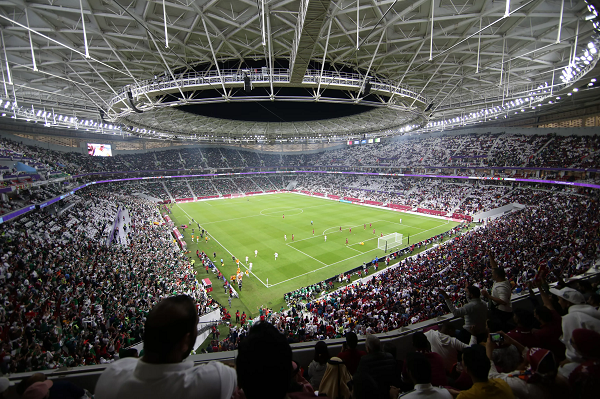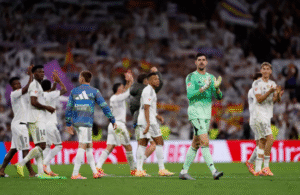Warning comes after multiple Club World Cup fixtures were played in the afternoon under conditions considered hazardous
To ensure the welfare of players, staff and spectators at the 2026 World Cup, some matches may need to start as “early as possible”, a leading expert has warned.
The brutal heat that has gripped parts of the United States during this summer’s FIFA Club World Cup is forcing renewed scrutiny on how the 2026 World Cup is scheduled.
Professor Mike Tipton, a renowned expert in environmental physiology at the University of Portsmouth, told BBC Sport that the health risks posed by extreme temperatures in the competition are too significant to ignore. He suggested that matches could, and perhaps should, kick off as early as 9 a.m.
“I’d move [the tournament] to an air-conditioned stadium with a roof, and preferably to a cooler time of the year,” said Tipton. “But we’re already stuck with this, so the only thing you can do is go to a cooler time of day.
“From a thermal-physiological perspective, for both health and performance reasons, I’d be looking to start games as early as possible – but I understand the logistical caveats.”
Temperatures in New York soared to 39°C on 24 June, breaking the city’s June record. The nearby MetLife Stadium in East Rutherford, New Jersey will host eight games in the 2026 World Cup, including the final. But the stadium offers no roof, and minimal shade. It’s a similar situation in many venues for the competition across the US, Canada and Mexico.
Tipton’s warning comes after multiple Club World Cup fixtures were played in conditions considered hazardous. Fans and players alike have been exposed to punishing heat, causing serious medical concerns and calls for more safety protocols.
“The health risks are not purely to the players,” said Tipton. “It’s also the officials and spectators, many of whom are much, much less fit. If you continue in conditions when all the rational scientific data says ‘stop’, organisers are taking on a fair amount of responsibility.
“FIFA should be thinking about where, when and how they play such games. It’s not beyond the realms that matches have to go to quarters rather than halves.”
FIFPRO’s Medical Director Vincent Gouttebarge has previously said that cooling breaks at the 30th minute and 75th minutes are traditional, but “don’t make sense” from a physiological point of view.
“Even if you ingest more than 200 millilitres of fluid, you already cannot take it all,” said Gouttebarge. “I would definitely like to see some project where we look at the efficacy of more frequent but shorter cooling breaks – every 15 minutes.”
The union’s general secretary Alex Phillips said: “We are partially happy, because FIFA have been quite responsive once the Club World Cup was underway [and] have actually modified how they’ve been dealing with heat during matches, based on our input.”




